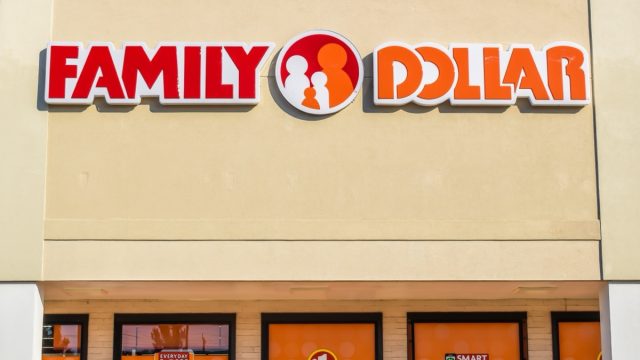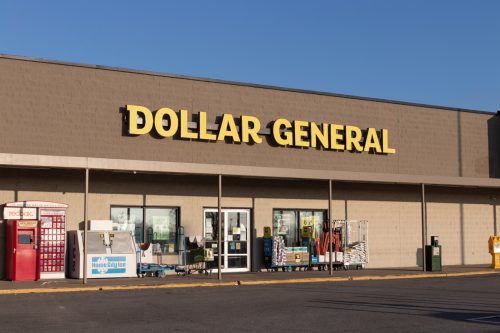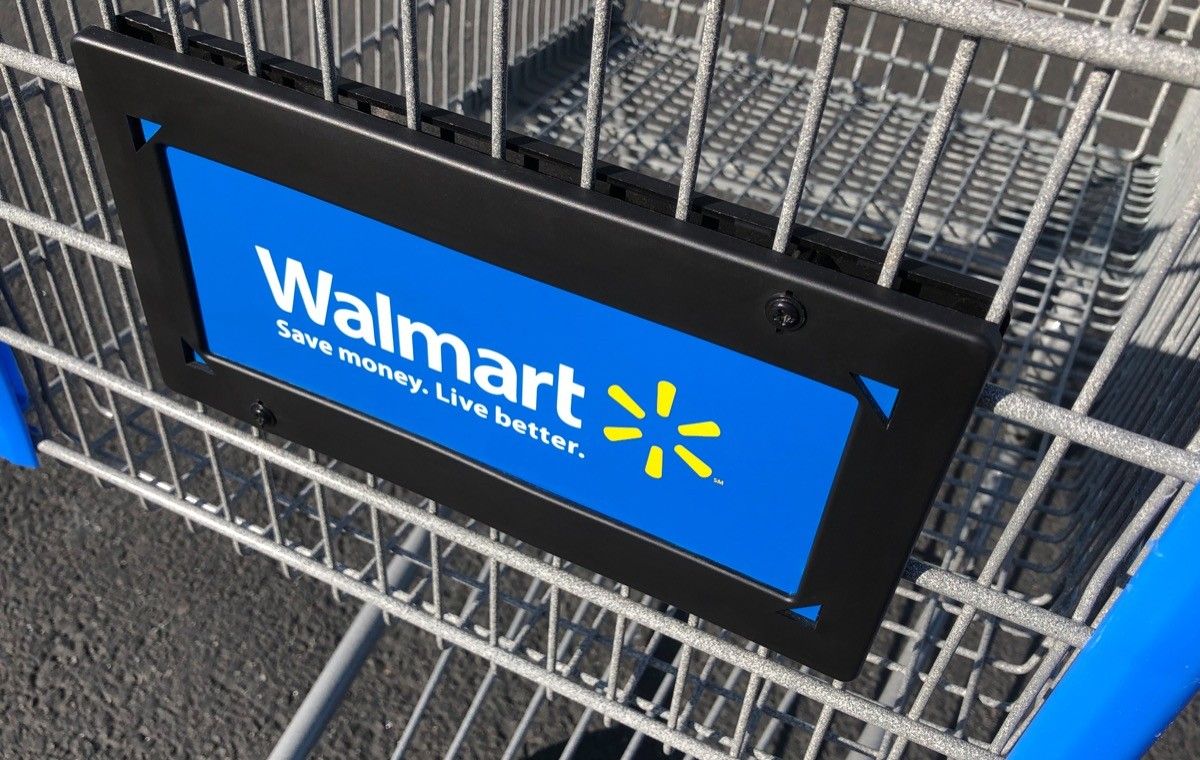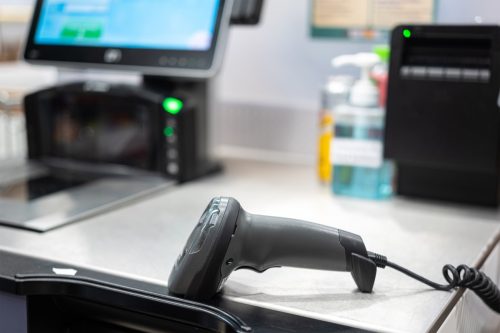Walmart, Dollar General, and Family Dollar Are All Under Fire for Overcharging Shoppers

With today’s inflated prices, the last thing that you want to learn is that you’ve been overcharged. Everything from groceries to gas costs that much more—and with the holiday season upon us, we’re all trying to avoid shelling out additional cash whenever possible. Some of the largest (and generally most affordable) retailers, however, have come under fire for overcharging customers. Read on to find out how Walmart, Dollar General, and Family Dollar are allegedly making customers pay more than they should be.
READ THIS NEXT: Dollar General Stores Were Just Shut Down for Major Violations.
One of these dollar store chains is facing a lawsuit.

This isn’t the first time any of these big-name companies have earned backlash for price discrepancies. Dollar General ended up facing a lawsuit after stores were found to be overcharging customers in Ohio.
According to a Nov. 1 press release from the Ohio Attorney General’s Office (AGO), Dollar General stores in “multiple counties” were charging customers higher prices at the register than what was listed on the shelf. The lawsuit alleges that Dollar General is violating Ohio’s Consumer Sales Practices Act by listing inaccurate prices, calling it “bait-and-switch advertising.”
Family Dollar, which is owned by Dollar Tree, also faced criticism, as “the same type of failures” were reported at stores in Butler County, Ohio. In a Nov. 3 press release, Butler County Auditor Roger Reynolds, of the Division of Weights and Measures, confirmed that 13 Family Dollar stores failed price checks with error rates between 12 and 84 percent (well above the allotted 2 percent error rate), albeit with some of the discrepancies working in customers’ favor.
Reynolds advised the public to be wary of these price differences—but now, the issue is affecting even more shoppers.
Another state is citing issues.

In North Carolina, bargain hunters are also paying more than they should be, according to a Dec. 9 press release from the North Carolina Department of Agriculture & Consumer Services (NCDA&CS). Approximately 70 stores in 38 counties were fined for price scanner errors after the department conducted its standard unannounced inspections.
Among the stores found to be overcharging, there were 28 Dollar General locations, 18 Family Dollar locations, and 14 Walmart stores, with fines reaching up to $5,000 per store. In addition, two Circle K stores were fined, as were individual locations such as Minuteman Food Mart, The Fresh Market, Tractor Supply, Sam’s Mart, Lowes Foods, Advance Auto, Staples, and Target.
RELATED: For more up-to-date information, sign up for our daily newsletter.
These errors have been on the rise.

Price scanner errors are nothing new in North Carolina, as the NCDA&CS also fined stores in April and again in August. According to Agriculture Commissioner Steve Troxler, about 26 percent of price scanner have failed inspections in the last year alone.
“Our Standards Division continues to see a significant increase in stores with price scanner errors, as many stores continue to deal with staffing shortages. Overcharges cost consumers so we remain vigilant in inspecting stores in order to protect consumers,” Troxler said in the release. “During the holidays especially every penny counts, and we want consumers to pay attention during check out.”
As in Ohio, the state of North Carolina allows a 2 percent error rate on overcharges, and when levels are higher, the inspector sets a follow-up inspection. Stores continue to be re-inspected every 60 days until the error rate is at the 2 percent rate or lower. (Undercharges are also reported, but they don’t negatively impact the store, per the NCDA&CS press release.)
If you think you’ve been overcharged, be proactive.

According to the press release, you should alert management at the store if you see an incorrect price on your receipt or a different price at the register than what you saw listed on the shelf. “It is always a good practice for consumers to check their receipts as well as the price on the shelf to make sure that they are paying the correct amount and alert managers if they are not correct,” Troxler said in the release.
In response to an emailed request for comment, Dollar Tree Chief Communications Officer Kristin Tetreault told Best Life, “At Family Dollar, we are dedicated to serving the needs of our shoppers and providing them with great values on the products they need and want. We are committed to operational compliance with all applicable federal, state and local laws.”
Best Life also reached out to Dollar General and Walmart for comment, but has yet to hear back.